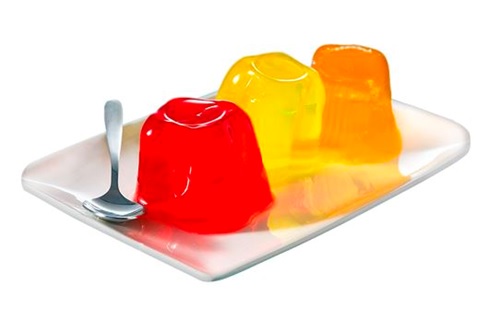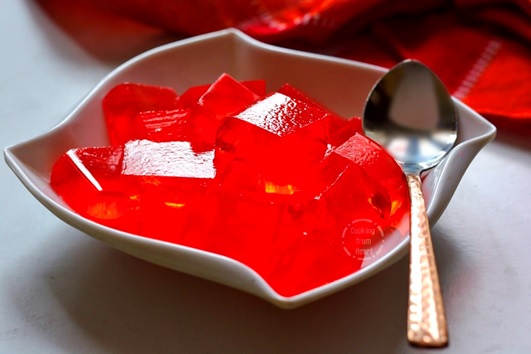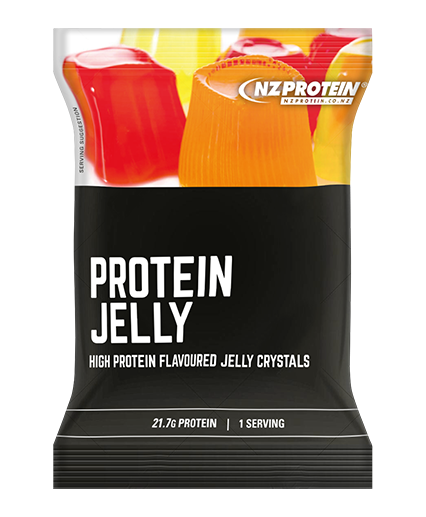
Are you trying to increase your protein intake? Do you love a sweet wobbly dessert or a hearty bone broth? Well gelatin might be your new favourite thing. If you’re plant based or vegetarian then this article won’t appeal to you. However if you want to include more high protein, nutrient dense foods in your diet and don’t mind animal products then read below. This blog will explain the health benefits of gelatin and why you should incorporate it into your diet.
Where Does it Come From?
Gelatin is a protein derived from collagen. It is sourced from the skin, bones and connective tissue of different animals. The most common types used in food products are of pork or bovine origin meaning it might not suit those who are vegetarian or halal. The word ‘gelatin’ comes from the Latin ‘gelatus’ meaning stiff or frozen. This is apt because the substance is brittle when dry and rubbery when moist. Most of us will be familiar with gelatin in the form of jelly dessert, but it can also be found in marshmallows, some cheeses, gummies and more. You can add gelatin to cheesecakes to help them retain their shape. It is also a common ingredient in chocolate mousse. Although a product that comes from ground animal bones doesn’t sound particularly appetising, there are many health benefits that come with jelly consumption.
High in Protein
Gelatin is around 99% protein (the rest is just water). You won’t find many protein sources as concentrated as this. It contains eight of the nine essential amino acids and is ideal for those who are trying to lay off the carbs. Getting enough dietary protein is an issue most Kiwis struggle with. This is a shame because a high protein diet comes with so many benefits. For example, protein is essential for maintaining muscle mass, feeling full after meals and fast wound healing. There are almost too many perks to list. Including more gelatin in our diets could help us hit our optimal protein targets. Bump up that intake and you’ll be looking and feeling much better for it.

Contains a Range of Nutrients
You might be surprised to find out that gelatin actually contains important nutrients. Eating jelly contributes to your daily iron, calcium, potassium and phosphorus requirements. These minerals are essential for bone, cell and tissue health. Any foods that contain vital nutrients like calcium are definitely worth including in your regular diet. Gelatin is also known for its unique amino acid profile. As stated above, it contains eight out of the nine essential acids our bodies can’t produce themselves. Although it doesn’t contain tryptophan, it is especially high in an amino acid called glycine. Good old glycine is essential for brain function, gut health and is often used as a sleep supplement. You should care about this because amino acid imbalances may play a role in mental health disorders like schizophrenia. Most people consume jelly for the taste and texture but now you have a few more reasons. It’s high in protein, nutrients and could potentially benefit your mental health.
Hair Skin & Nails
Do you wish you had luscious locks and smoother skin? It turns out gelatin could help you out with this. It has already been established that collagen is great for our hair and skin. Since gelatin is derived from collagen, it has a very similar nutritional profile and affects the body in the same way. Numerous studies have been done to test the efficacy of supplementation. One found that women with alopecia who took gelatin increased their hair mass by 40%. This is because gelatin helps your body build more collagen. The reason our skin loses elasticity as we age is because our collagen levels decline. Getting more through supplementation or diet can make a huge difference to the appearance of your skin. So if you want thicker hair or bouncier looking skin, try eating more wobbly foods. A jelly a day could keep the wrinkles at bay.

Bone Health
Any osteoarthritis sufferers out there? Research shows that gelatin may be able to alleviate those symptoms. A study of 80 participants with osteoarthritis found that gelatin capsules were more effective at reducing pain and joint stiffness compared to placebo. This could be due to a range of factors. Gelatin has been shown to help the body absorb more calcium which could explain the bone health benefits. It could also be the amino acids present in the gelatin that are having the positive effect. More research is always needed but if a bit of jelly can improve your quality of life, then it’s worth a shot (not an alcoholic jelly shot though). Life is too short to be skipping desserts and walking around with aching joints. Add a bit of wobble to your diet and your skeleton will thank you later.

Conclusion
Early humans consumed gelatin frequently however the average modern diet is lacking. This is unfortunate because it means we miss out on so many potential health benefits. Luckily, we no longer have to chow down on bones and organs in order to get gelatin into our diets. These days it comes in a convenient packet and is readily available. Although it’s easy to opt for the full sugar supermarket options, you could do much better by trying some NZProtein jelly instead. Ours is sugar free and contains an impressive 21.7g of protein per serve. The NZProtein philosophy is that nutritious foods don’t have to taste bad. We believe you can have your jelly and eat it too.

